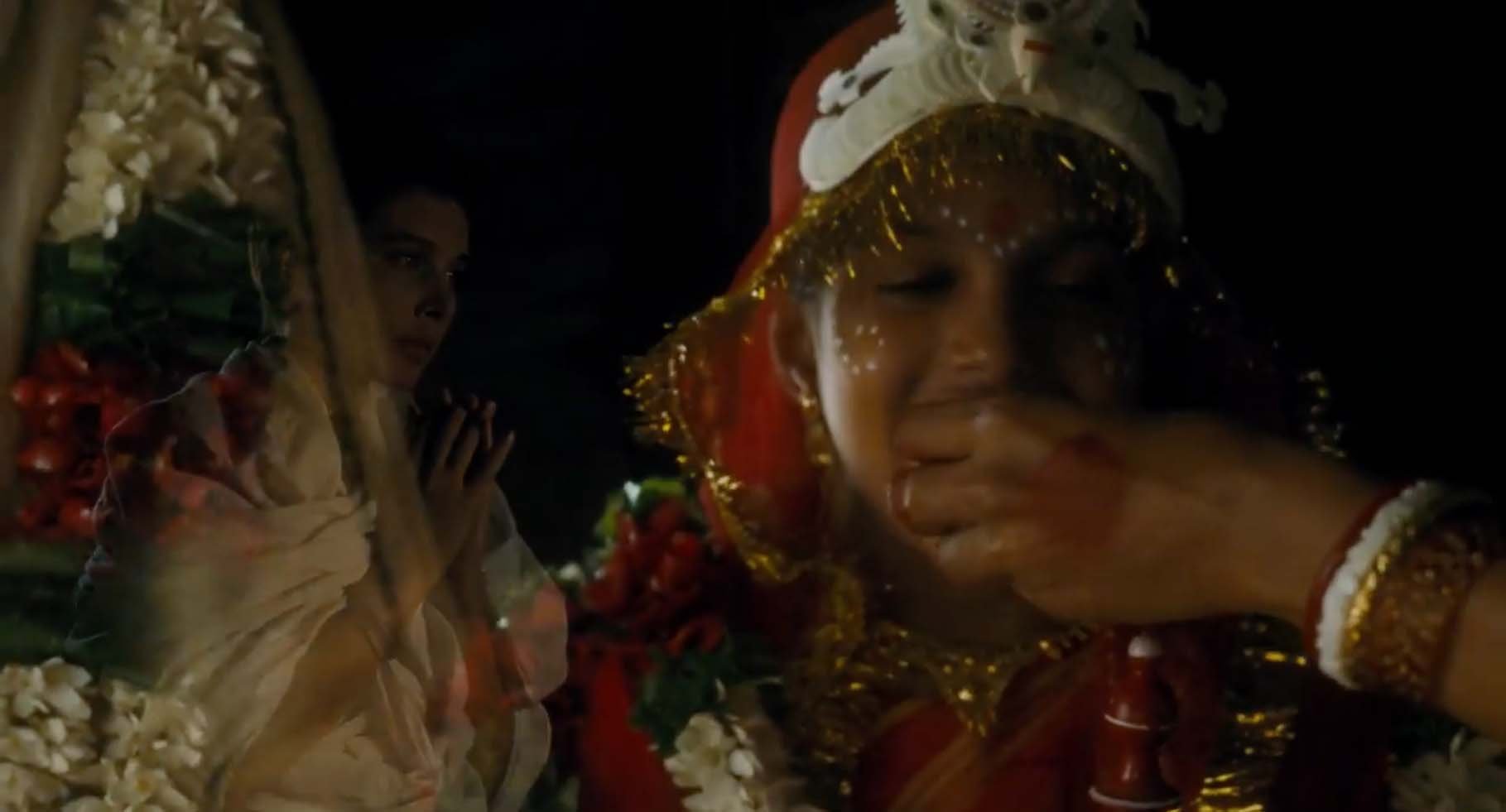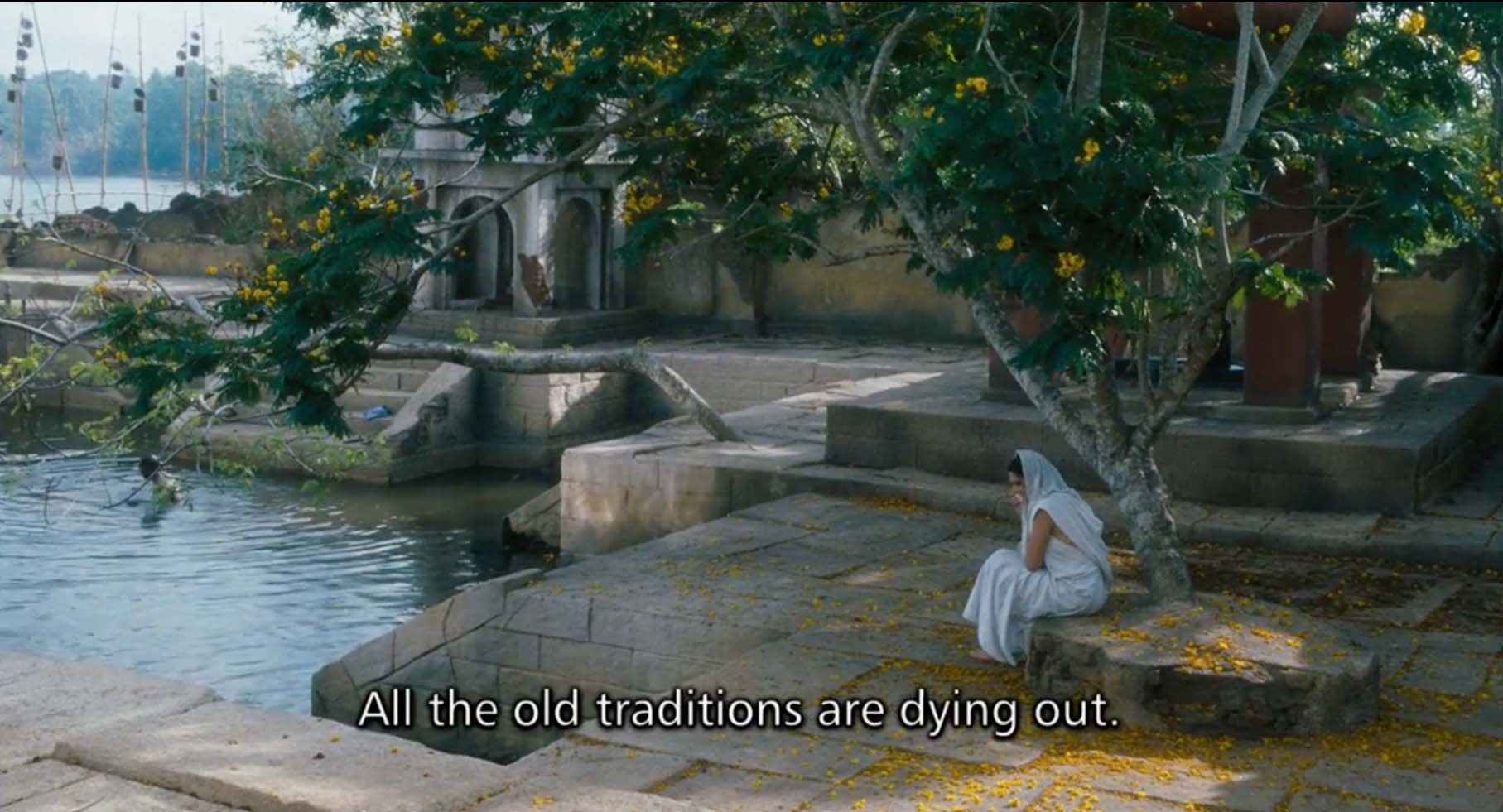Water (2005)
Maha-bharata 1.104.31-32, Dirghatamas [Rishi] said
‘I lay down from this day as a rule that every woman shall have to adhere to one husband for her life. Be the husband dead or alive, it shall not be lawful for a woman to have connection with another. And she who may have such connection shall certainly be regarded as fallen. A woman without husband shall always be liable to be sinful.’
Maha-bharata 1.160
‘There is no sin in this. For a man polygamy is an act of merit, but for a woman it is very sinful to betake herself to a second husband after the first.’
Garuda-Purana ch. 95, tr. M.N. Dutt
‘A girl should be given only once in marriage…’
Vamana Purana 12.85, tr. Anand Swarup Gupta
‘Those who remarry widows and those that defiles unmarried girls, and the ancestors of the offsprings of such unions are made to eat worms and ants.’
Skanda Purana III.ii.21.15-17, tr. G.V. Tagare
‘It is mentioned by Kasyapa that these burn the family like fire: The daughter of a widow who marries again should be always avoided. She is the lowliest born…one who has gone round the fire and one who is a child of a widow remarried – all these burn the family like fires (says Kasyapa).’
Kurma Purana II.17.14, tr. G.V. Tagare
‘One should particularly avoid the food served by a widowed woman who has remarried…’
Now, coming back to the current time of the year in 2021, from these ancient Indian (Hindu history) scriptures dated back to two thousand years and more ago. It is not very long ago where women in India used to surrender themselves in funeral fires along with their husbands’ dead body to be turned into ashes; formerly known as the SATI practice. The deep rooted spiritual connection of marriage highlighting the sacred union of one’s soul mate had made Indians follow bizarre practices for many years. The above texts are just few out of many that governed the culture of India in strict Hindu communities for many centuries.
Some researchers even say that such practices and regulations were imposed and influenced by the social conditions of women in those times, less from spiritual consequences, mainly to prevent the misconduct of women living without any masculine support from happening.
On the name of religion (considering a social tool) when the very rules that were intended to save lives, later turned out to be gruesome hence, finally India was slowly reforming its operations while fighting for Independence.
Water is a 2005 film written and directed by Deepa Mehta with screenplay by Anurag Kashyap capturing the pivitol transition India was making socially and culturally. The film explores the lives of widows at an Ashram in Varanasi, India with a dark introspection into the tales of rural Indian widows in the 1940s while covering controversial subjects such as ostracism and misogyny.
In an interview, Deepa Mehta stated: "Water can flow or water can be stagnant.I set the film in the 1930s but the people in the film live their lives as it was prescribed by a religious text more than 2,000 years old. Even today, people follow these texts, which is one reason why there continue to be millions of widows. To me, that is a kind of stagnant water. I think traditions shouldn't be that rigid. They should flow like the replenishing kind of water."
The film premiered at the 2005 Toronto International Film Festival, where it was honored with the Opening Night Gala, and was released across Canada in November of that year. Much later after many controversial complications finally first released in India on 9 March 2007.
Deepa Mehta has done all women an immense service by making this extraordinary film about the liberation of their sisters yearn for with their hearts, minds, bodies, and souls from the orthodox paradigms of our society. Author Bapsi Sidhwa wrote the 2006 novel based upon the film, Water: A Novel, published by Milkweed Press.
Water as one of the best movies of the year, depicts the terrible damage that can be done to the human spirit when chauvinistic religious rules and texts are treated as sacrosanct. The inhumane treatment of widows in India by Hindu fundamentalists is similar to the subjugation of women by fundamentalist Christians, Jews, and Muslims elsewhere.
It is appalling to see religion used to deny the dignity and rights of women. Set in 1938 when India was under Britishers. Child marriage was a common practice, and widows had a diminished position in society. Opening the story with the character of Chuyia (Sarala Kariyawasam) is an eight-year-old girl, who loses her husband. To keep up with traditions of widowhood, she is dressed in a white sari, her head is shaven and she is left in an ashram, to spend the rest of her life in renunciation, highlighting the practices of Hindu widows of the time, such as no vanity, no attending auspicious events, entering temples, eating tasteful food, remarriage, etc to name a few.
The result of the scriptures represents widows as half dead women, where the husbands’ death was considered a horrendous result of ill karma. The story runs around the situation of fourteen women who live in the dilapidated house, sent there to expiate bad karma, as well as to relieve their families of the financial and emotional burdens of caring for widows.
The ashram is ruled by Madhumati, a pompous lady in her 70s. Her only friend is the pimp, Gulabi, a trans woman who keeps Madhumati supplied with cannabis. The two also have a side business: Gulabi helps Madhumati prostitute Kalyani (Lisa Ray), a beautiful young widow, by ferrying her across the Ganges to customers. Kalyani was forced into prostitution as a teenager to support the ashram.
The movie has the cinematic aesthetics similar to Satyajit ray’s cinematic style where poverty and rural life is viewed with subtle glorification. The frames are shot in alignment for the depiction of beauty in society and for accurate presentation of people’s life, lived with pure simplicity and innocence entwined with faithful devotion.Water is the final film in a trilogy by Deepa Mehta. First is Fire, centered around two married women, ignored and neglected by their husbands, who fall in love with each other; second is Earth, focused on how the relationships among a group of Hindu, Muslim, and Sikh friends are tested during the partition of Pakistan and India. Her works bring light upon complexity of culture that struggles with social norms to establish progression ,development and renewal. Reflecting the authentic and honest representation of complicated human mentality.
words JAGRATI MAHAVER
What to read next














